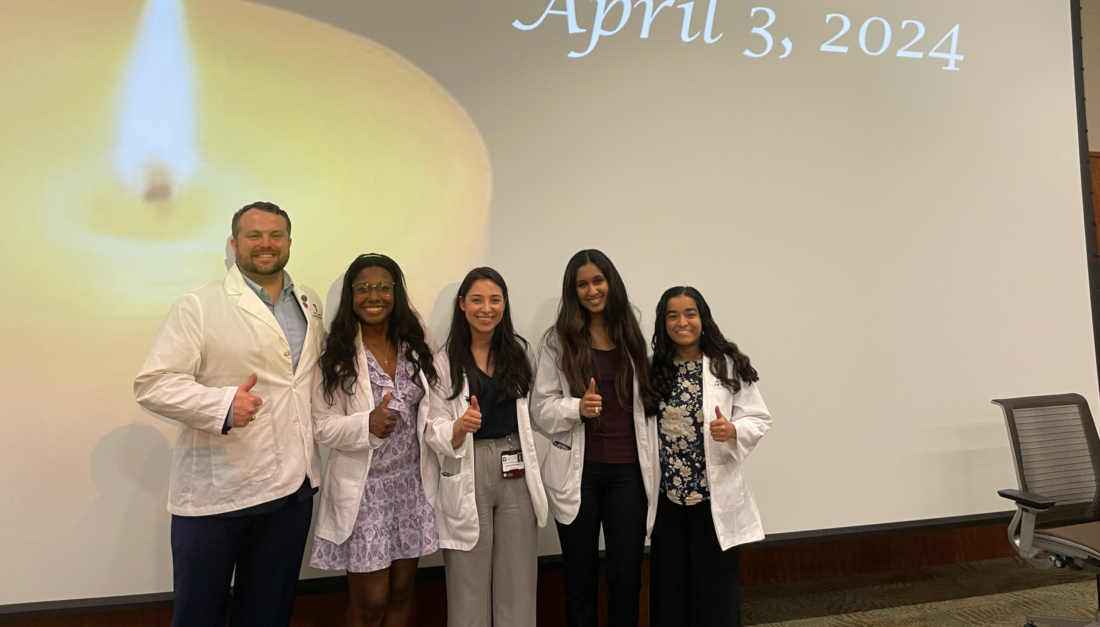- Katherine Hancock
- Administrative Updates, Medicine, Show on VR homepage
Texas A&M welcomes psychiatrist, national leader in PTSD
Israel Liberzon brings decades of PTSD research to Texas A&M College of Medicine

Israel Liberzon, MD, has joined Texas A&M College of Medicine as the Department Head of Psychiatry, effective today. In addition to his leadership role in the Department of Psychiatry, Liberzon will develop a clinical psychiatry component as part of Texas A&M Health Science Center’s new Interprofessional Faculty Practice Plan, fulfilling a need for psychiatric clinical treatment and support in Bryan-College Station and surrounding areas.
A clinician and researcher, Liberzon brings to Texas A&M a wealth of experience in post-traumatic stress disorder (PTSD), comorbidity of depression and anxiety, neurobiology of trauma and stress related disorders, and neuroanatomy and neuroimaging of emotions. Since the 1980s, Liberzon has served in multiple roles at the University of Michigan and Veterans Administration Ann Arbor Medical Center, where he founded a PTSD and neuroimaging research program.
In his new role at Texas A&M, Liberzon will help advance the college’s priorities of rural population health, military medicine and engineering medicine. An initial focus of the Department of Psychiatry will be telehealth—which is an immediate avenue to bring mental health care to rural patients. With 185 of the state’s 254 counties lacking a psychiatrist, and a large portion of rural Texas being comprised of military members and their families, Texas is in dire need of psychiatric care.
“The addition of mental health to our clinical outreach directly ties to our charter, filling a critical need for improved access and outcomes for both rural populations and the military community,” said Carrie L. Byington, MD, vice chancellor for health services at The Texas A&M University System, senior vice president of the Texas A&M University Health Science Center and dean of the Texas A&M College of Medicine. “We are honored to welcome Dr. Liberzon to Texas A&M and look forward to working with him to transform mental health care and innovative research for these underserved populations.”
The Interprofessional Faculty Practice Plan will be especially important for the local and rural communities. Currently, the mental health specialist-to-patient population in Brazos County is 1:1,190, a shortage which is almost five times greater than the national average. The Interprofessional Faculty Practice Plan will improve behavioral health access by making it integrally available in primary care.
“Our aim is to make health care, including behavioral health, accessible to all,” said Steven Brown, MD, chief clinical officer and associate vice president of clinical strategy for the Health Science Center and professor with the Texas A&M College of Medicine. Brown is leading the charge on the creation of the Interprofessional Faculty Practice Plan. “With Dr. Liberzon’s expertise, we will extend services currently available in our community to include more specialized care that serves the needs of the vast majority of Texas A&M employees and their families, as well as rural residents throughout the Brazos Valley.”
The Department of Psychiatry will educate and train medical students, and eventually will train psychiatry residents. Statistics have shown that medical school graduates who complete residencies in a state tend to stay and practice as physicians in that state, further increasing the likelihood of psychiatrists staying in Texas.
“Establishing a new residency program will be a critical step in educating a next generation of physician-scientists committed to the delivery of highest quality psychiatric care as well as neuroscience research in Texas,” Liberzon said.
In addition to training medical students, Liberzon’s leadership and the Department of Psychiatry may yield opportunities across The Texas A&M System for mental health education. Regina Bentley, EdD, MSN, RN, CNE, assistant vice chancellor for health services for The Texas A&M University System, explained that the Texas A&M College of Nursing hopes to seek approval to lead a program with other system nursing schools for advanced practice nursing education in psychiatric-mental health.
“We hope to find a way for the entire Texas A&M System to contribute to the practitioner network and provide policy development, quality of care improvement, practice evaluation and health care reform,” Bentley said. “We are very excited that Dr. Liberzon is joining us to meet the public’s needs in our community and across the state.”
Liberzon’s interest in medicine began very early, as his parents were both rural physicians in Ukraine. He credits their dedication to improving lives as the impetus to his career in psychiatry. He served three years in the Israeli Defense Forces as a combat paramedic and treated both soldiers and civilians in combat zones. His work on PTSD examines the intersection of psychiatry, psychology and neuroscience, and how experiences are translated into biology. Liberzon received his formal medical training from the Sackler Faculty of Medicine at Tel Aviv University, and completed a postdoc in physiology at the Technion Israel Institute of Technology. He joined the University of Michigan’s Department of Psychiatry as a resident in 1988.
During his time at the University of Michigan, Liberzon facilitated both clinical and laboratory PTSD research. His lab created the first rodent model of the symptoms and neural physiology seen in PTSD patients which have contributed to increasingly comprehensive models of the understanding of PTSD.
At Texas A&M, he plans to continue his research on regions of the brain that are involved with PTSD, working on neurocircuitry and molecular abnormalities in signaling pathways, while also expanding care to patients in Central Texas and Houston areas.
“This is an exciting time to join Texas A&M and make a difference for the population of Texas and beyond,” Liberzon said. “Not only will this serve as a platform for addressing the desperate need for psychiatric care in the state, but with breakthrough programs like EnMed in the same institution, and affiliates like Houston Methodist Hospital and the Houston Methodist Research Institute, the possibilities are truly endless for advancing psychiatric care.”
Media contact: media@tamu.edu


